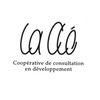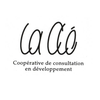note Note générale
The Bois-Francs «Corpo»: Beacon of New Solidarity
Forward
The idea of writing the history of the Corporation de développement communautaire des Bois-Francs (commonly known as 'Corpo' in French, but referred to hereafter as CDCBF) is by no means a recent one. In fact, the project was already starting to take shape in the time leading up to the first decade of its existence in 1994, a year marked by political turmoil, the holding of its second policy convention, and the seeking of new financial solutions to support the corporation's continued operations. Because Health and Welfare Canada agreed to support the preparation of a study of the CDCBF only in late November of 1994, it was unfortunately not possible to have a document available for the commemoration of that anniversary. The tasks of researching and writing this book were attributed to the founding president of the CDCBF as well as to its present coordinator and bis two predecessors. As three of the four people belonging to this editorial committee are part of the Coopérative de consultation et de développement La Clé, a working agreement arrived at between the CDCBF and La Clé for the production of this book. It must be made clear at the onset that this document does not entertain any lofty ideals. lt is simply an attempt to describe the CDCBF's evolution from historical, descriptive and analytical perspectives. The examination of the singular, collective experience that was the creation, consolidation and development of the Corporation de développement communautaire des Bois-Francs, is aimed at filling an important gap. We begin by taking a look back beyond the CDCBF's own beginnings, a "prehistory" of sorts, which allows us to place this organization within the development, in the Bois-Francs region, of the communitarian movement as a whole. ln the ensuing analysis of the CDCBF's evolution over the last ten years, two distinct periods become apparent: the first covering the years 1983 to 1988 devoted to the organizing and structuring of its activities, and the second focused on its increasing political activism. This book also touches on the socio-economic context related to the struggle against poverty, an issue that is very much at the heart of the CDCBF's development. Drawing a number of lessons from this experience, this study concludes by identifying challenges for the coming years. This work's target audience is primarily community organizers interested in local development, both here in Québec and elsewhere in Canada. This work will essentially be made available to them through various networks of practioners. Although the book is not intended for the public at large, it may nonetheless be of interest for people in our local area. Finally, this work is dedicated to all of our region's activists, the men and women who commit themselves to the cause of community development. Chronicling the history of the CDCBF was an invigorating chal lenge, and it is safe to say that this undertaking will, in part, respond to a great number of inquiries from various corners pertaining to the CDCBF's experience, especially from those who have just recently integrated community organizations
Complete document
William A. Ninacs, The Bois-Francs «Corpo»: Beacon of New Solidarity, avec Genois, G., C. Lapointe et R. Leroux, Victoriaville, Corporation de développement communautaire des Bois-Francs, 84 pages, 1997
diversity_3Organisation(s) reliée(s)
 26 mars 2023
26 mars 2023
Coopérative de consultation en développement La Clé
26 mars 2023 26 mars 2023
26 mars 2023
Corporation de développement communautaire des Bois-Francs (CDCBF)
26 mars 2023Carnet(s) relié(s)
 file_copy
137 notes
file_copy
137 notes
Productions de William « Bill » Ninacs
file_copy 137 notes file_copy
88 notes
file_copy
88 notes
Archives de la Coopérative de développement La Clé
file_copy 88 notesAuteur·trice(s) de note
Contacter l’auteur·trice Discuter de la note Plus d’informationsPublication
17 mai 2023
Modification
15 juin 2023 09:19
Visibilité
public
